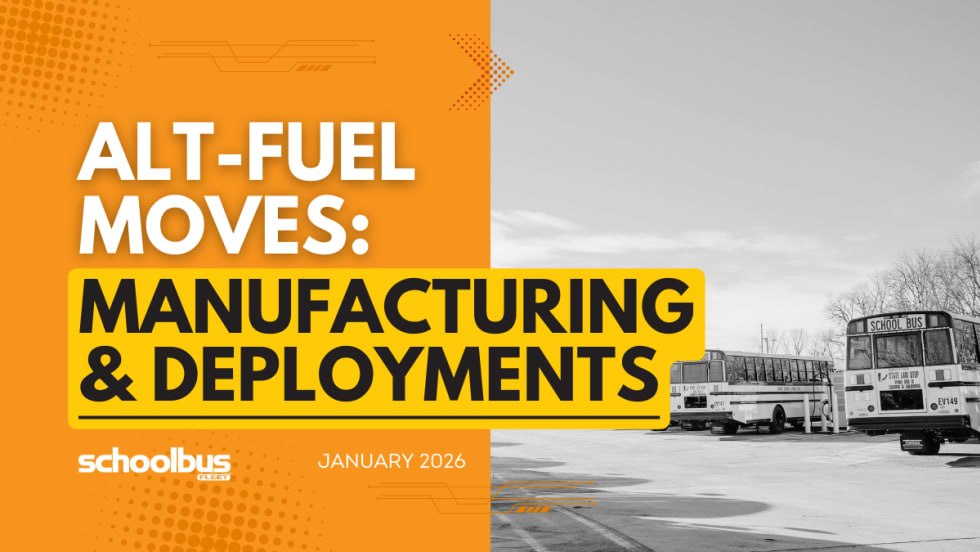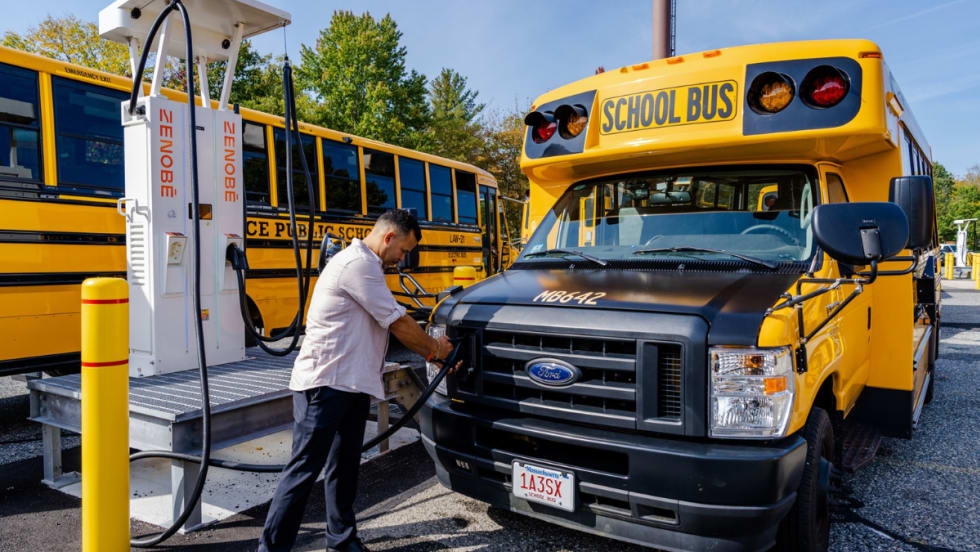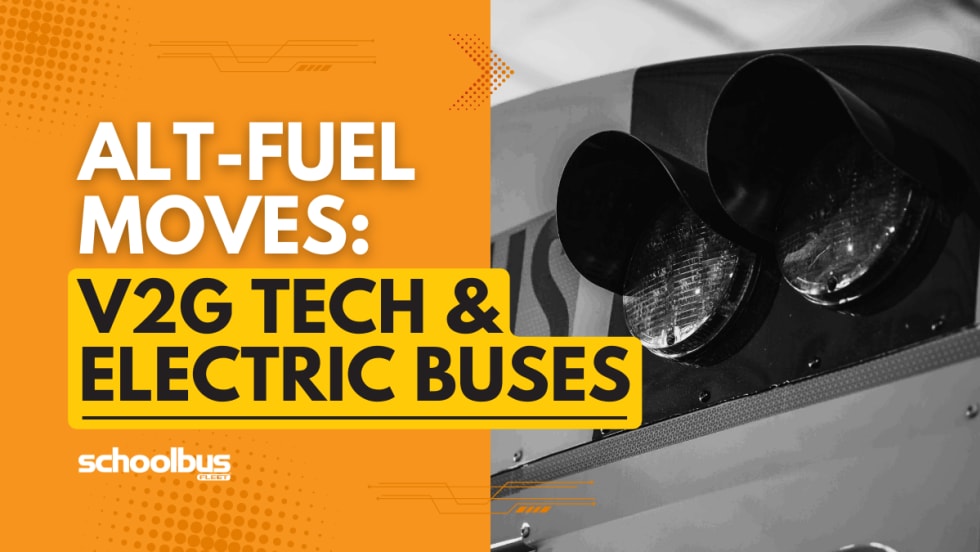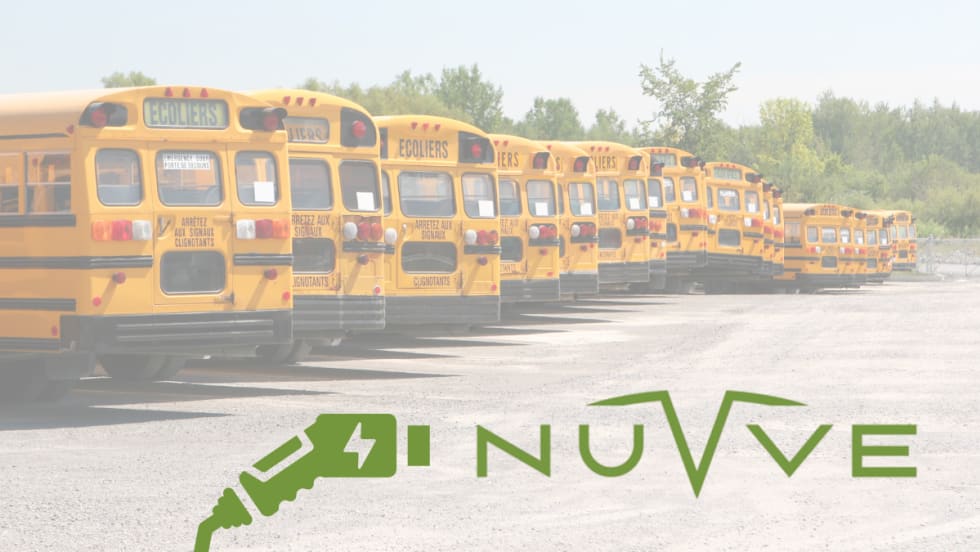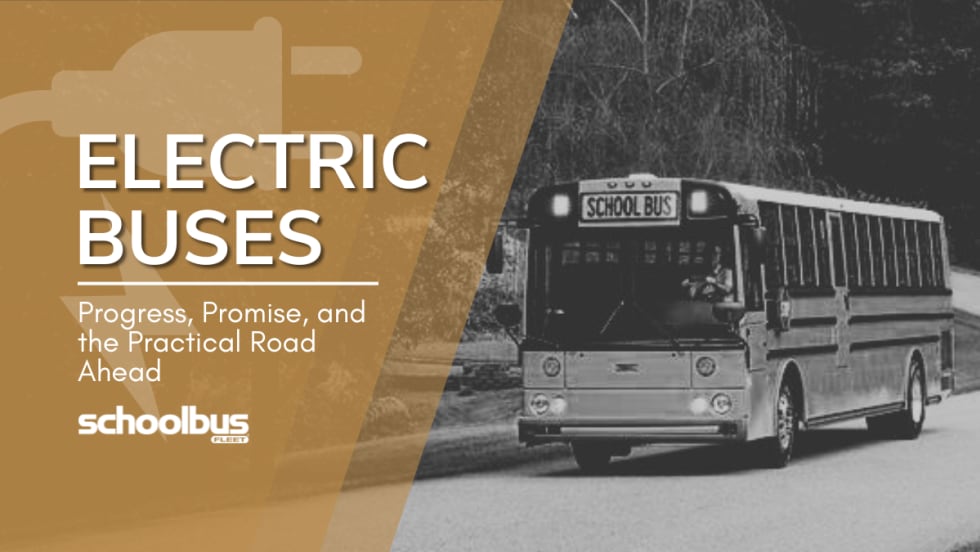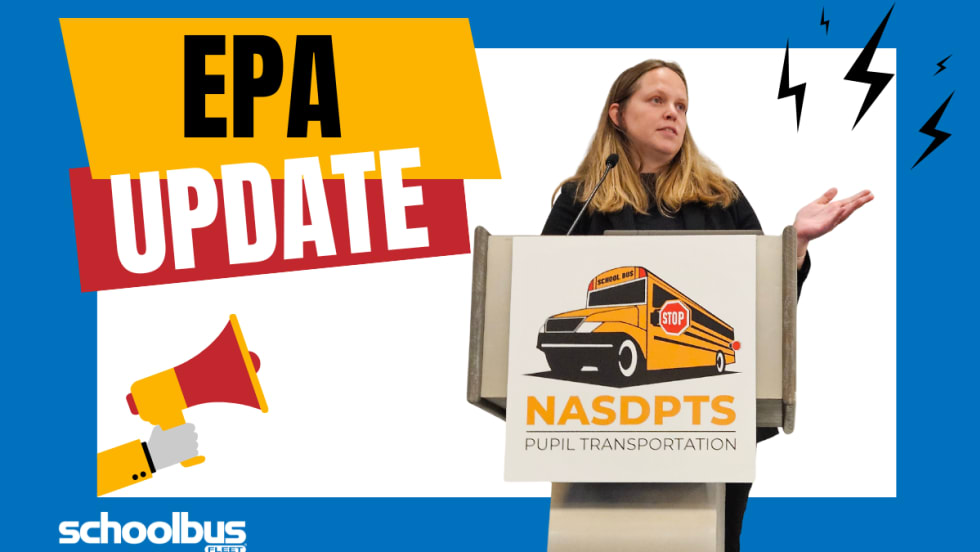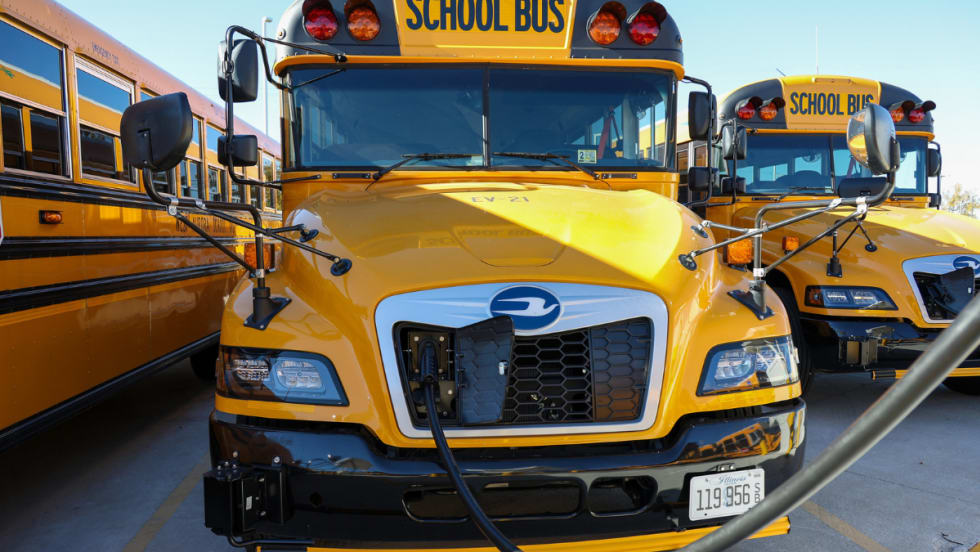The true impact of President Joe Biden’s Infrastructure Investment and Jobs Act on the nation’s school bus fleets likely won’t be seen until the latter part of 2023.
That’s the prediction of Mathias Carlbaum, president and CEO of Navistar, the parent company of IC Bus, who held a media roundtable discussion on Friday to discuss what lies ahead for the company he started leading last fall.
The new law earmarked $5 billion to spend nationwide on clean bus fleets – including electric and other zero-emission options - over the next five years.
Carlbaum described school bus electrification as “the tip of the spear” for taking all of Navistar’s vehicles to zero-emissions by the year 2040.
“This will really be a propeller for the whole electrification of vehicles in the United States,” he said, because the technology is already out, working in both rural and urban areas, with predictable routes. Plenty of interest exists, he said, but “this is a learning journey.”
School bus operators need to explore which routes are a fit for electric vehicles and what their needs are for charging infrastructure. Carlbaum expected that IC Bus would help bridge those uncertainties.
“We see volume pickups on basic demand” for buses in general, he said, but thinks the real growth in EV school bus demand won’t hit its stride until next year.
Besides waiting on those federal funds to become available for EV buses, production across the industry has struggled due to supply chain issues, especially when it comes to microchips.
“I won’t say every Monday is a surprise,” Carlbaum said. “There’s a surprise every day. Things are still unstable…. Looking at my crystal ball, it will improve throughout the year, toward the later part of the year.”







